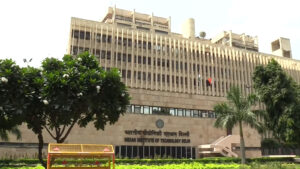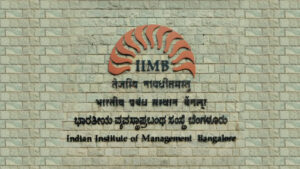Budget 2024 Expected to Boost Higher Education Funding
4 min read
The Indian Higher Education sector is rallying for a Budget that mirrors the National Education Policy (NEP) 2020, emphasizing innovation, holistic growth, and addressing sector-specific needs. The vision of India becoming a developed country by 2047 is intricately tied to strategic goals outlined in the NEP, aiming for economic growth, increased savings, and a higher credit to GDP ratio. This article explores the sector’s expectations from the upcoming Budget 2024, with a focus on aligning financial resources with the transformative vision of the NEP.
Table of Contents
Current Economic Landscape
India presently enjoys a robust economic position, driven by factors like the demographic dividend, a digitally adept workforce, a committed government, a burgeoning middle-income segment, and widespread digitalization. In this transformative journey, the role of higher education institutions becomes crucial in providing clear career pathways for the youth. Customizing curricula, especially in business and science-focused institutions, is vital for skilling and reskilling the youth, enabling them to navigate the evolving job landscape successfully.
Aligning with NEP 2020
The upcoming Budget 2024 holds profound significance in propelling the education sector towards the ambitious targets set forth in NEP 2020. As a financial blueprint for the nation, the Budget translates policy aspirations into actionable measures, aligning financial resources with the transformative vision outlined in the NEP. Adequate budgetary allocations are essential to address the multifaceted needs of the education sector, including infrastructure enhancement, research and innovation, and holistic learner development.
Sector-Specific Expectations for Budget 2024
Increased Budgetary Allocation
Rajendra S Pawar, Chairman & Co-Founder, NIIT Group, emphasizes the need for a substantial increase in the budgetary allocation for education. He suggests raising it from 2.9% to 6% of the GDP, a crucial step for the NEP to deliver its full potential and meet national objectives on the path to global leadership.
Research and Development
Dr. Kim Menezes, Vice Chancellor, GD Goenka University, highlights the higher education sector’s expectation for significant financial measures, including increased budgetary allocation for research and development. He also calls for lower interest rates on student loans and reduced tax burden for universities.
Innovation and Entrepreneurship in Design Education
Dr. Jitin Chadha, Founder & CEO, Indian Institute of Art & Design, sees a unique opportunity in the Budget 2024 for investing in human capital, particularly in nurturing talent and innovation in design education. He suggests allocating funds for co-funded research projects and establishing design startup incubators within institutes.
Holistic Approach to Education
Dr. (Prof.) Anand Achari, Principal, Vivekanand Education Society’s College of Architecture, emphasizes the need for additional support in curriculum development, skill programs, and industry-academia collaboration. He sees the Budget 2024 as an opportunity for positive shifts, highlighting a holistic approach to education.
Shifting Preferences and Creative Industries
Dr. Dhara Thakore, Head Incubation and Office of Career Service, Anant National University, connects education with the global workforce, pointing out the shift in student preferences towards creative industries. She anticipates budgetary support for infrastructure and research in private higher educational institutions.
Comprehensive Outlook and Balanced Approach
Dr. Prabhat Pankaj, Director, Jaipuria Institute of Management, Jaipur, outlines expectations focusing on the Gross Enrolment Ratio (GER), vocational education, AI integration, ‘Study in India’ program, and fair treatment for private institutions in terms of regulatory ease and research funding.
Prof. Arvind Sahay, Director at MDI Gurgaon, provides a comprehensive outlook, expecting policies for economic recovery, increased digital infrastructure, and initiatives supporting STEM education.
Transformative Measures and Industry-Academia Collaboration
Vishnu Manchu, Pro-Chancellor, Mohan Babu University, highlights the significance of measures like the National Credit Framework, online learning integration, and the need for up-skilling. He expects strategic resource allocation for producing job-ready graduates and emphasizes support for industry-academia collaboration.
Challenges Faced by Autonomous Institutions
Dr. Madhumita Chatterji, Director, ABBS School of Management, emphasizes historical challenges faced by self-funded autonomous institutions. She calls for specific funding earmarked for these institutions to cover the cost of higher education.
These collective expectations from leaders in the Indian higher education sector echo a unified call for a transformative budget 2024. It aims to align with the changing landscape of education, foster innovation, support skill development, and position India at the forefront of global leadership in education. As the Budget 2024 unfolds, the nation awaits to see if these expectations translate into actionable steps for the advancement of the education sector. Hope Budget 2024 will help a lot to develop the education sector and that will boost the future of India.





